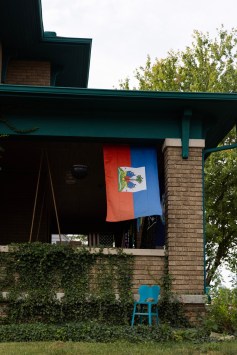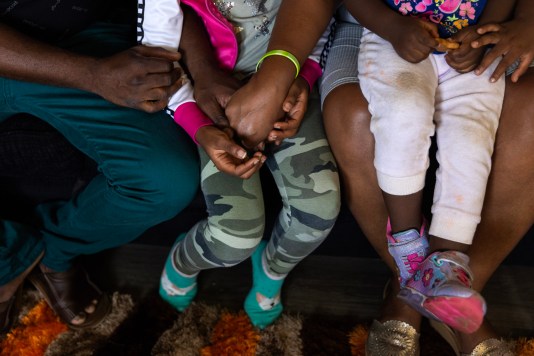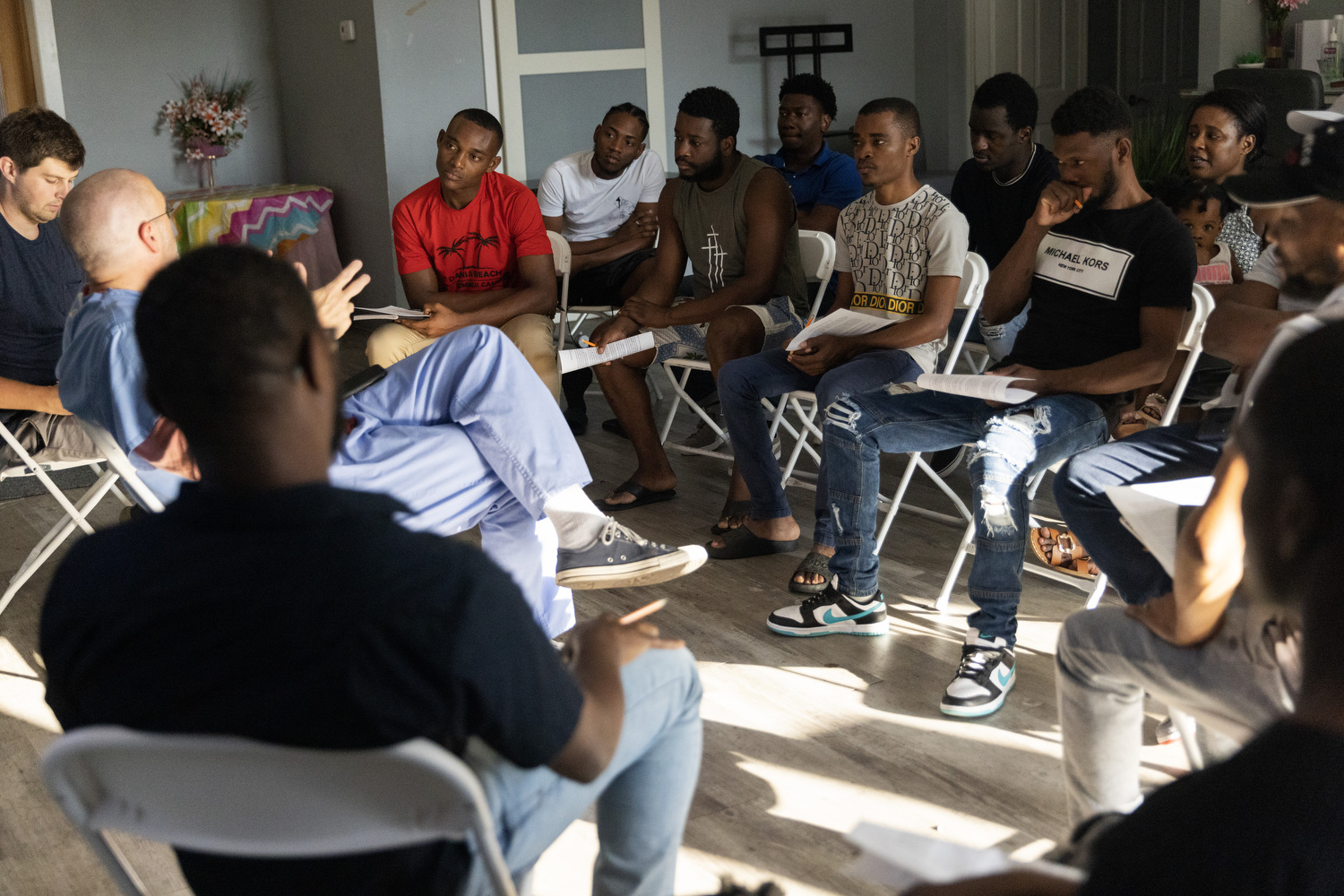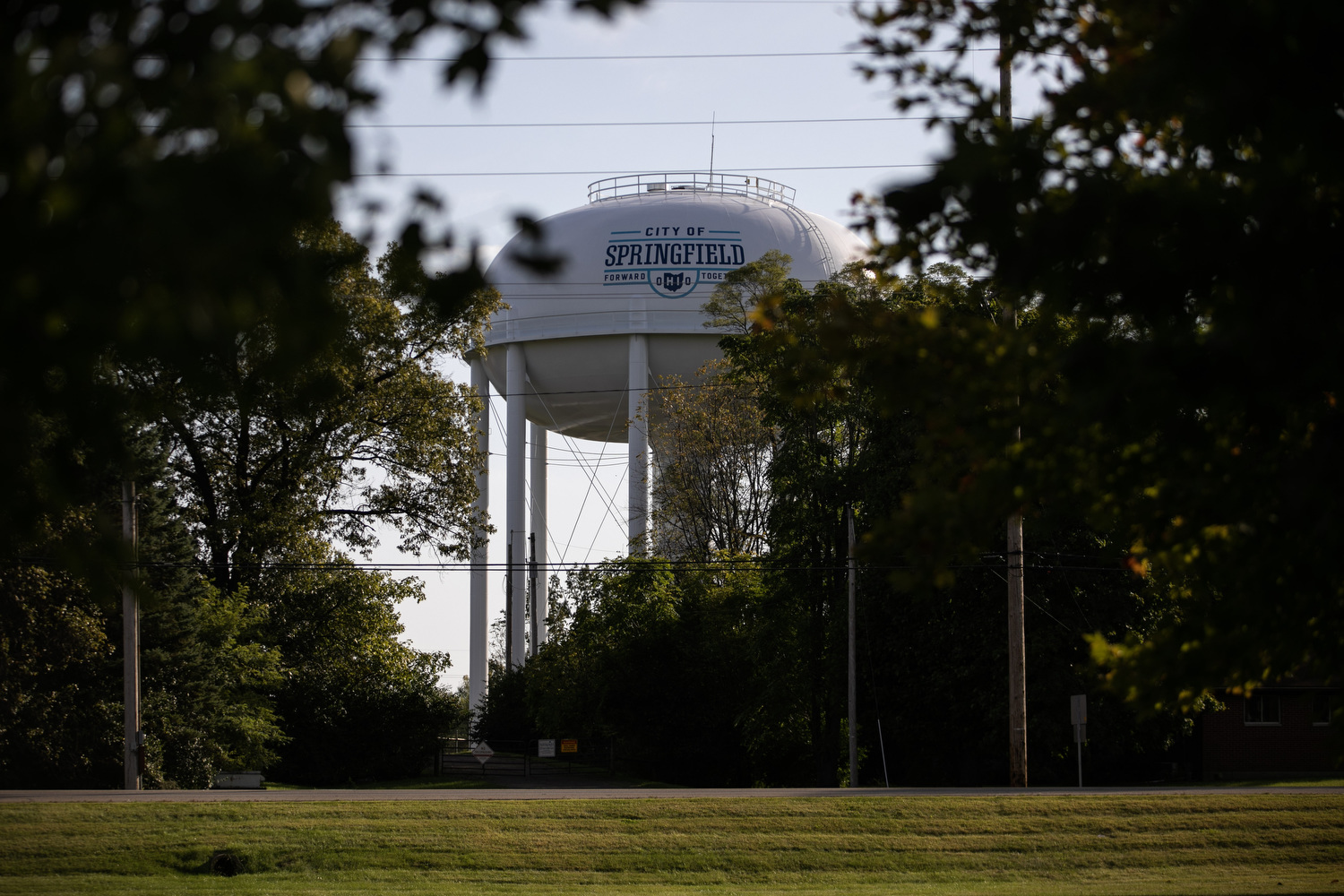In this series


One recent evening at a Springfield church, 70 Haitian immigrants hurried inside to classrooms where they were learning English. Some brought their children. “Bienvenue!” said Tami Carter as people came into the church lobby and were separated into classes based on their English proficiency.
Carter is a staff member at The Nehemiah Foundation, which for 33 years has paired Springfield churches with local nonprofit ministry
partners. Its task in a city of 60,000 is to help coordinate resources, passion, and people to work on citywide needs including housing and addiction recovery.
The group is currently assisting 15,000 Haitian immigrants fleeing violence in their home country. They are living in the US legally with Temporary Protected Status.
Most came to Springfield to find work. Some long-term residents were happy to welcome hard-working newcomers, since the city had been in a long population decline. But the recent influx of thousands of people with different cultural backgrounds put stress on local schools, police, and other public services.
Then, last September, presidential candidate Donald Trump and his running mate JD Vance spread false rumors that Haitians in Springfield were eating local pets. Trump and Vance alleged that a Haitian had “murdered” a local child in a car crash (it was an accident) and that Haitians were spreading diseases.
The day after Trump made his claims, Springfield’s city hall received a bomb threat. Staff members at Nehemiah’s offices a block away remember how many such threats their tight-knit city eventually navigated: 33.
During a prayer walk that the foundation helped organize for the city during that heated September, helicopters buzzed overhead and dogs sniffed for bombs. The Nehemiah volunteers, as they prayed for the city, wore T-shirts that said “Bringing Heaven Here.”
“It felt very surreal,” said Amy Willmann, executive director of Nehemiah Foundation, who had been planning a pilot program for church-run classes in English. She recalled that after the pet-eating lies, someone meowed at her Black pastor. But the 20 local churches of many denominations that had agreed to carry out the pilot weren’t deterred.
Though Haitians stayed away at the start, 83 adult students eventually enrolled, and the program was a success. “Our boast is in the Lord,” Carter said. “He has all this planned.”
At the end of the pilot, Nehemiah surveyed the students to ask if they should continue the program and got a yes. This spring the organization launched a full 26-week version of the classes. More than 100 church members from around the city volunteered to teach or to provide childcare two nights a week. Others helped with planning and oversight.
“It’s an opportunity to take the negative press and, while the world is still watching, reflect what happens when the church steps up and says there is a better kingdom,” said Jeremy Hudson, pastor of Fellowship Church, one of the city’s largest evangelical churches.
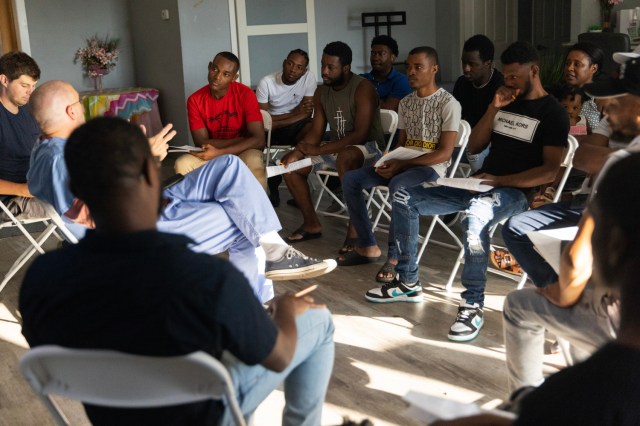 Photography by Maddie McGarvey
Photography by Maddie McGarveyThe English classes in Springfield include childcare because they are following a time-tested model from Festa, a larger Christian organization providing ESL classes in nearby Columbus, Ohio. Festa had found that a lack of childcare was a barrier to adults attending class, especially for women. It now provides dinner, childcare, and transportation. And its work has blossomed.
Festa trained Nehemiah volunteers, and Nehemiah took on aspects of Festa’s safety system. Volunteers go through background checks and have a badge to show it. Each person working in the program wears a brightly colored T-shirt so students know who to ask for help, and also so organizers know if someone is there who shouldn’t be.
Given the bomb threats and Trump’s threats of deportation, safety remains a concern even for legal immigrants like the Haitians in Springfield. When Nehemiah staff members announced new language classes to one Haitian church and said there would be building security, the congregation broke into applause.
Nehemiah’s long relationships in the community have helped build a strong program. The Clark County Literacy Coalition has advised Nehemiah on honing its program with sensitivity to literacy levels. Local health department and emergency management officials share information about tasks like how to find local doctors or detect a gas leak.
Haitian “cultural ambassadors” also advise the language program. Bernadette Dor-Dominique, a Haitian American who translates as needed for Nehemiah’s ESL students, has helped the program develop “a welcoming environment to make them feel loved,” she said. “We are in it together.”
Many Haitians worry about deportation. Dor-Dominique, who was a police officer in Haiti, said, “There’s no safe place in Haiti for anybody.” Depending on what happens with US immigration policy, Springfield may not be the answer either.
But on one evening in a Springfield church gym, children from Haiti played soccer, gulped down sports drinks, and gobbled up peanut butter crackers. In the church’s classrooms, their parents practiced their English and bent over workbooks—a serious commitment, with several hours of class twice a week. Halfway through class, the students, including a local Haitian pastor, took a break for tea, coffee, snacks, and conversation.
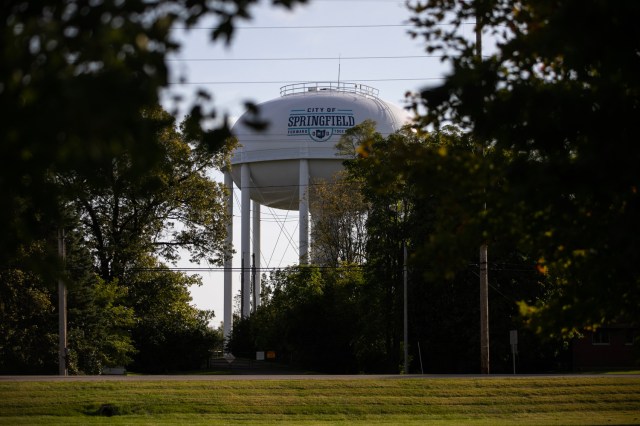 Photography by Maddie McGarvey
Photography by Maddie McGarveyFor some Haitians here, English isn’t their second language but their fourth. In a higher-level class, one teacher discussed cultural questions: Is lengthy eye contact acceptable in the United States? One young student, who clearly had a grasp of both the language and culture of the US, said with a smirk, “It’s not demure,” referring to a phrase from a TikTok trend.
In the meantime, some of the American church volunteers are learning Creole, and others like Kristi Leeth are teaching English classes for the first time. Leeth paused during a break while Haitians and others from around the world laughed together. “I want [these immigrants] to know there are people in our community who are glad they are here,” she said.
Emily Belz is a senior staff writer for Christianity Today.













